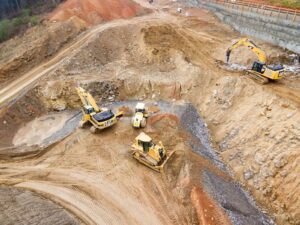The annual ceremony, recognising the bleeding edge of innovation in environmental, energy, and green spaces, was held on Tuesday 14th November.
In total, eight winners were handed trophies at the event, each recognised for their efforts to advance and develop solutions to some of the world’s most pressing ecological challenges. Winning organisations receive grants, global publicity, and access to a vast network of potential funders, investors and partners.
Four of the commended projects were linked to work in Africa, one in India, and a further three were from the UK. British success stories include The Housing Asociations’ Charitable Trust for its use of carbon credits to unlock funds to retrofit homes, and Thames21/Enfield Council for engaging local residents in a collaborative approach to restoring rivers, ponds, woods and wetlands, creating a more resilient London borough. The third homegrown winner was FarmED, a Cotswolds non-profit working in regenerative agriculture to ‘transform attitudes to food and farming’.
Looking away from Great Britain, Nigeria’s Burasolutions Solar Academy was commended for improving skills and career pathways into the green economy for women and marginalised communities. The country also claimed a second award, as Husk Power Systems was lauded for Outstanding Achievement after committing to building over 500 clean energy mini-grids by 2026, powering schools, hospitals, and businesses, supporting 2million people and preventing 25,000 diesel generators from being used.
In Uganda, Power For All’s Twaake 2.0 project was recognised for uniting centralised and decentralised energy companies, resulting in faster and cheaper electrification in rural areas. Kenyan nominee USAFI Green Energy walked away with a new award created for 2023, focused on tackling the humanitarian energy crisis in refugee camps and temporary communities.
The firm makes and supplies affordable, low-carbon cookstoves in the Kakuma Refugee Camp. Used to offer emergency accommodation to those fleeing conflict, oppression and persecution, nationals from South Sudan, Somalia, Ethiopia, Burundi, the Democratic Republic of Congo, Eritrea, Uganda and Rwanda call the facility home. It was established in 1992, and is now among the largest of its kind on the planet.
Finally, Cameroon’s CERAF-NORD was honoured for efforts to restore degraded land around the Benue National Park through agroforestry and bee-keeping. Meanwhile, in India Collectives for Integrated Livelihoods Initiatives won the Powering Agriculture award for helping women in the country’s Central Tribal Belt increase their income through the use of renewable power, in turn rising to become local community leaders.
You can find full details of all the winners, and Ashden’s work, here. Nominees for 2024 are now open, and information on how to apply is here.
‘Our winners prove people are passionate about creating practical solutions to the climate emergency – whether giving their time to restore rivers in the UK, or using clean energy to power up a thriving business in Uganda. And just look what happens as a result: higher incomes, better health, stronger communities and the creation of new jobs,’ said Ashden CEO Ashok Sinha.
‘But these brilliant solutions need serious backing from policymakers and investors. For example, this year’s winners include innovation that could unlock millions of pounds to create warm, energy efficient homes across the UK – surely that’s a scheme worth supporting?’, he continued. ‘Meanwhile, the Global South is still waiting for promised climate finance. Our international winners are powering up farms and refugee camps, creating jobs for a clean energy future, and protecting threatened rainforests. It’s vital that increased funding reaches these climate heroes.’
More on climate awards and empowerment:
Local authority assemblies are empowering community net-zero strategies
A Glassdoor for workplace climate action and education is here
Image: FarmED

















